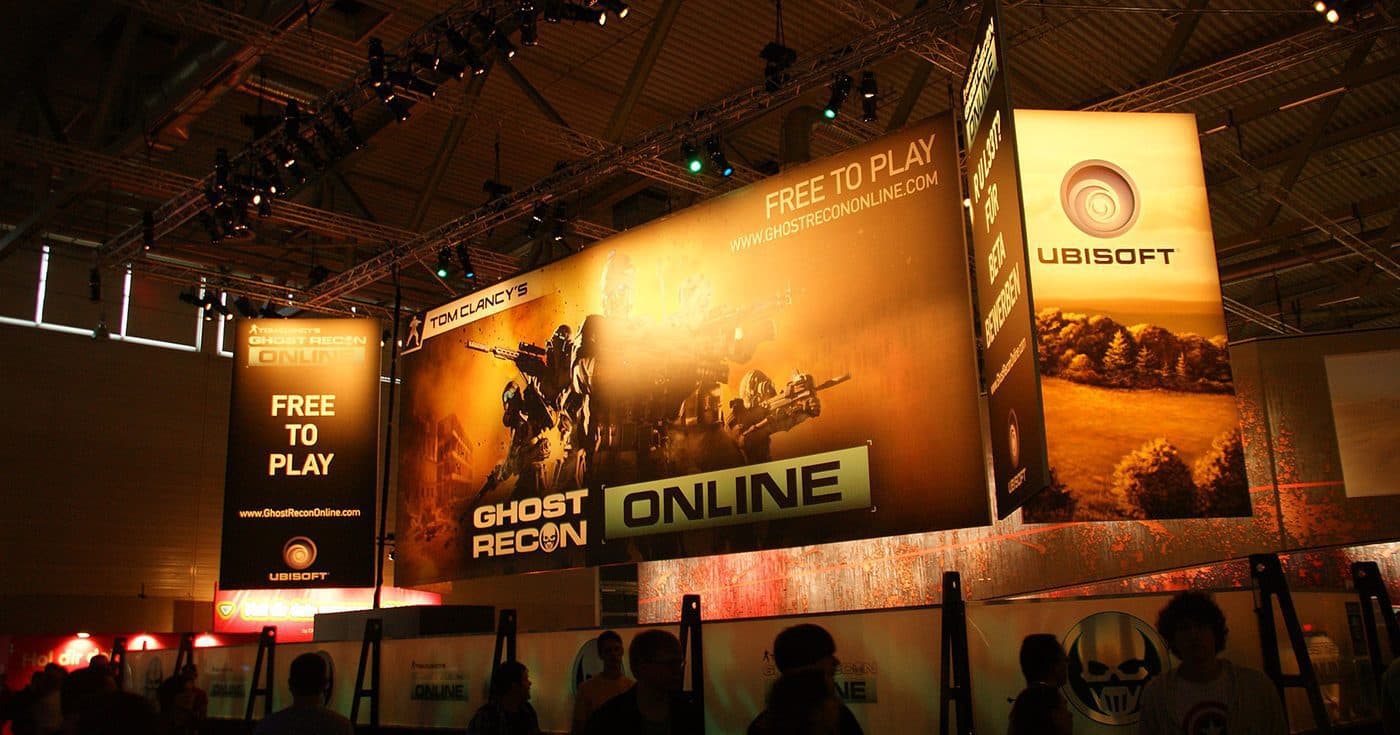Ubisoft’s NFT Efforts are Off to a Rocky Start
Ubisoft, along with other major game publishers, are pushing NFTs as a next-generation companion to games. But are gamers interested?

Ubisoft Ghost Recon conference; Source: eknutov from Eindhoven, The Netherlands, CC BY-SA 2.0, via Wikimedia Commons
- On-chain data shows that Ubisoft has had less than $500 in volume on its gaming NFTs
- Ubisoft has faced immense backlash from its developers as it tries to push NFTs as a new companion for games — along with many of the world’s other larges studios
Ubisoft’s much hyped in-game NFT system, which launched earlier this month on the Tezos blockchain alongside Ghost Recon: Breakpoint, hasn’t caught the interest of gamers, according to on-chain data from trackers Objkt and Rarible.
A look at on-chain data via a Tezos block explorer shows that there has only been $435 (100tz) worth of volume on the platform. While Ubisoft Quartz has minted 3,000 of these NFTs so far, it has sold fewer than 20 according to data from Rarible.
Of the 86 transfers of Ghost Recon themed NFTs between users, 49 of them involve transfers to the same account, and a further 24 involve transfers from that same account suggesting wash trading.
These NFTs can only be sold between players of the specific Ghost Recon game and are only useable in said game. Thus, if the popularity of the game is effectively the market maker for the NFTs themselves. Breakpoint doesn’t appear to be the best reviewed entry of the Ghost Recon franchise, with mediocre review scores from the gaming press.
EA Games and Square Enix have also expressed interest in developing in-game NFTs, with EA CEO Andrew Wilson calling NFT and “play-to-earn” games the “the future of our industry,” on a recent earnings call.
Do gamers want NFTs?
Ubisoft’s decision to push for in-game NFTs hasn’t been popular amongst its developers. The trade union representing the company’s Paris-based employees denounced the pivot to NFTs in a statement published earlier this week.
“Ubisoft has recently entered the blockchain and Non-Fungible Tokens (NFT) market. A decision that has been widely criticised by our players, bringing no improvements or benefits to our games,” the statement reads.
While Ubisoft continues to push ahead with its NFT integration plans, the company behind the game S.T.A.L.K.E.R. 2: Heart of Chernobyl has decided to cancel its NFT plans based on negative feedback it received from fans.
The company behind S.T.A.L.K.E.R. 2, a follow-up to the critically acclaimed 2006 sci-fi horror game S.T.A.L.K.E.R had said publicly that the rationale for minting NFTs was to have a new revenue source for funding the game, as it is an indie-studio without large pockets.
Still, it’s not quite clear if the market has made up its mind on NFTs or if anti-NFT voices are drowning out the rest on social media platforms.
A recent survey from insight agency Opinium showed that 58% of its surveyed 197 video game developers are now beginning to use blockchain technology, with 64% saying that blockchain technology will become prevalent in video gaming within the next two years, and 53% believing that NFTs would be more common by then too.
But this data is for developers and not gamers themselves, so until some comprehensive data from gamers comes along, on-chain data will be the best proxy on the actual interest for NFTs in games.
Get the day’s top crypto news and insights delivered to your inbox every evening. Subscribe to Blockworks’ free newsletter now.






